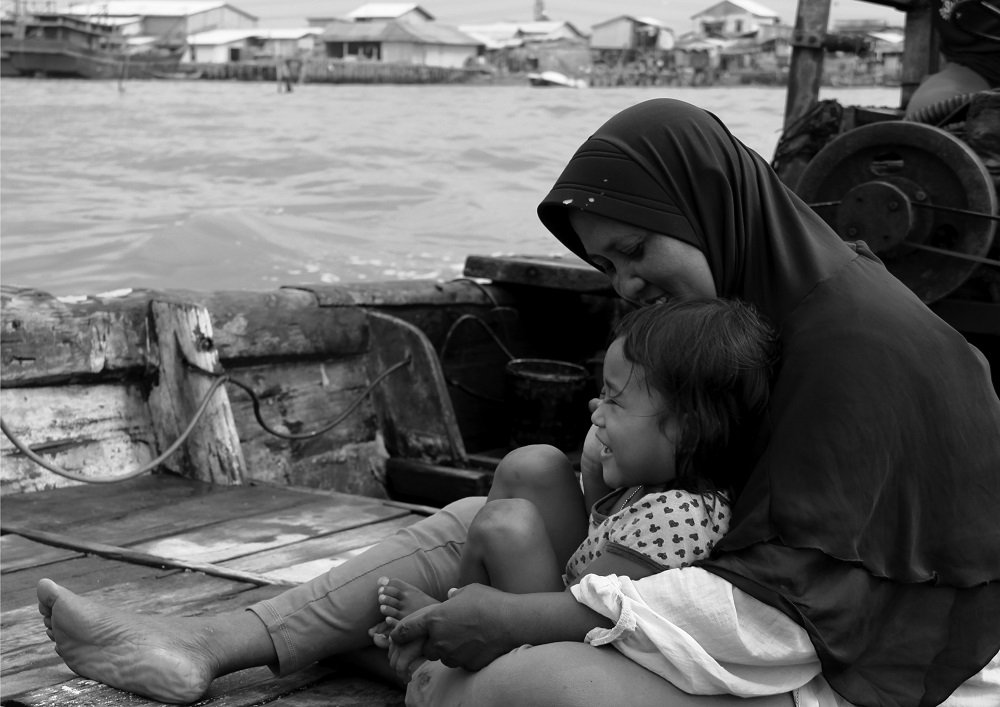intro
In a story like this, in which the main characters seem to be local fishermen, it is not likely to mainly want to focus on the role of women. Yet, that is exactly what Amien from the Indonesian environmental organization WAHLI South Sulawesi would like to do. “There is a lot of gender inequality in these projects,” says Amien. “The role of women is extremely important in these communities, which means that the consequences of these kind of projects are the biggest for the women. This often overlooked and nobody seems to care.”
Making ends meet
The women are in charge of the household. They make sure that the bills are payed, that there is food, that the kids go to school and that the house doesn’t fall apart due to erosion. As a result, they see and experience every detail of the sand extraction for the Centre Point project. When the income from fishing decreased by 80% it was down to the women to find alternative means to make ends meet. Either by taking out a loan or by getting their children out of school so they could work.
The children’s fate
“Under normal circumstances they would never take their children out of school,” Amien explains. “They think education is very important, but it also costs money. Not only school fees, but also transportation and lunch money. Because the money was no longer available, the women were forced to even take the little ones out of school that had just started to learn how to read and write. Those children are especially dependent on their mother and so the pressure on those women was enormous.”
The children were put to work to earn some extra money. They would go to the central marketplace to buy fish from the larger fishing boats, who were less affected by the Centre Point project than the traditional fishermen. They would then go inland to sell the fish door to door for a small profit. Over a 100 families were affected by Centre Point this way.
Protests
The women are not only the driving force behind the local economy, but also behind the protests against this project. “The entire community is present at these demonstrations: men, women and children. But it is the women who are most motivated and who prepare the protests to every little detail, because they are the ones who had to deal with the consequences of the Centre Point project the most.”
Hope for the future
The sand extraction for Centre Point has now been completed. The fish that disappeared are slowly starting to return and so the fishermen are slowly regaining their income. Erosion is still taking place, but on a much smaller scale. The fishermen have hope for the future. “I hope these people can hold onto this feeling of happiness they’re slowly starting to feel again,” says Amien.
“And I hope that in the future they don’t have to deal with projects like these and foreign businesses flying in temporarily, taking the profits with them and leaving the local community behind with no benefits whatsoever. I hope that from now on the government will only attract companies that have eye for the environment, living circumstances of the local community and gender equality.”









